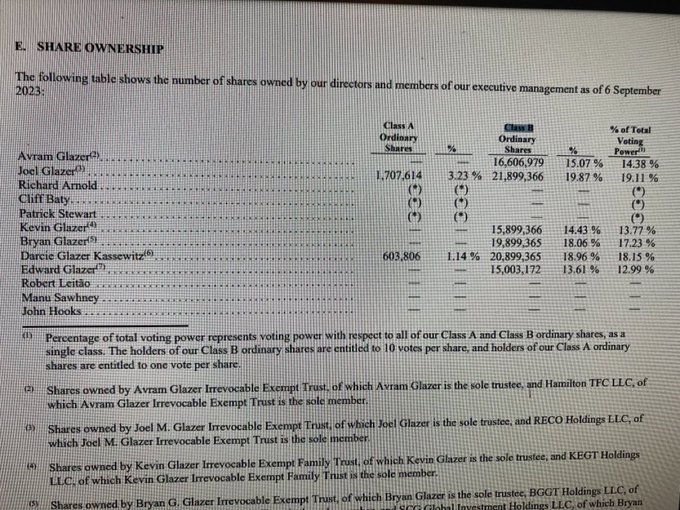I’ve had a lot of experience in acquisitions and limited partnerships. There is a lot of handwringing which really isn’t necessary. The reason the Glazers did it this way is that they didn’t reach their target valuation. Now, we don’t know if the 25% of the voting shares is coming from some of Glazer kids, or if all the Glazers will be diluted. When you realize that 69% of the corporation is owned by the Glazers, obtaining 25% of the company in Class B voting shares is essentially giving SJR full control. It means he’ll have roughly 38% of the voting shares, and he’ll be the largest shareholder.
Most major board level decisions require 66.7% of the shares/board to approve a resolution. When I say “major”, I mean new injection of capital, new shareholders, issuance of new shares, purchase of assets over, say, a certain amount, like 10m. As such, Sir Jim likely has veto power over any resolution raised by the Glazers, because they won’t have the 66.7% to outvote him. That’s why he has operational control. In addition, he’s added another 300m in capital injection commitments, which dilutes the Glazers further, by another 5-6%… meaning he’ll have 30%+ of total shares and 45% (roughly) of the voting shares.
On top of that, he’s committed to buy 25% of the class A non-voting shares @$33 a share. That’s a premium of $13 per share! As this happens, the value of the A shares will go up… and we know there is a vehicle to convert Glazers voting shares to non-voting shares which they can sell on the open market, or Sir Jim also has right of first refusal.
‘Look… the beginning of the end of the Glazers is here. This is a very savvy move by Sir Jim. TheCaf is saying the Glazers are “smart” and Sir Jim is “stupid”. No! This was the only way to get the Glazers out without meeting the undeserved sky high valuations they were demanding.
It’s happening people… the Glazers are on their way out. My guess is that Sir Jim will take full control, and own 51% of the voting shares with 18 month. The Glazers will be completed out, or just a minority shareholder, which is very common in These types of transactions.


